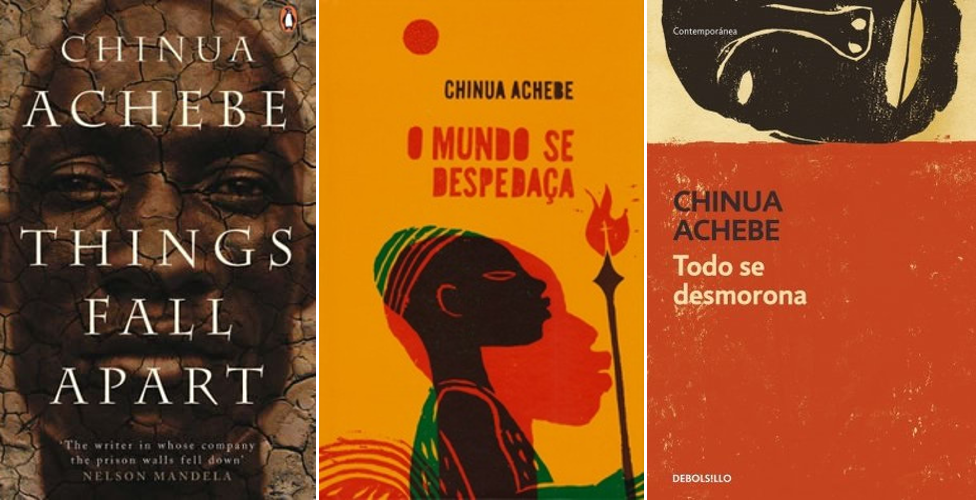Blog •
Posted on Feb 28, 2022
Literary Translation: The Art of Bridging Cultures
About the author
Reedsy's editorial team is a diverse group of industry experts devoted to helping authors write and publish beautiful books.
More about the Reedsy Editorial Team →Linnea Gradin
The editor-in-chief of the Reedsy Freelancer blog, Linnea is a writer and marketer with a degree from the University of Cambridge. Her focus is to provide aspiring editors and book designers with the resources to further their careers.
View profile →Literary translation is the art of carrying a piece of prose or poetry from one language to another. But unlike the technical nature of interpreting and translating conversations or official documents, translating literature requires great deliberation and strong linguistic capability in both languages.
When done right, a translation can be so powerful that readers become loyal to that version and prefer it to other translations. In this post, we’ll look at the skills required to translate literature, the impact that translation can have, as well as its current presence in the publishing industry.
Literary translation transforms how we think
Why is literary translation important? If books and stories are meant to show readers a range of experiences and perspectives, then translated literature is absolutely crucial to doing that. Through translations, you can travel to various places and experience various lives without even leaving your armchair. It makes accessible to us the worlds of the foreign narrators, their concerns, their conundrums, and their joys. We can see cultural similarities and differences in a way that encourages empathy and consideration of new points of view on all sorts of issues.
Not only does foreign language literature expose us to different ideas, it also continuously boosts diversity in genres and storytelling craft. Can you imagine a world without the realist psychoanalytic masterpieces of Fyodor Dostoyevsky, the magical realist tales of Gabriel García Márquez, or the ruminations on human relationships of Elena Ferrante? These insightful materials that can provoke thought in readers as well as inspire writers all over the world to broaden their horizons with their writing — something that would be far more limited without literary translations.
It allows authors to reach a global audience
While we’re on the topic of how writers benefit from translation, let’s talk about the advantages in reach that translation can give a book.  The world is globalizing, meaning readers are becoming more and more interested in diverse stories and viewpoints. English-speaking markets are increasingly interested in stories that aren’t set in English-speaking places — and vice versa. Literary translators help bridge this gap and connect authors with new groups of readers worldwide.
The world is globalizing, meaning readers are becoming more and more interested in diverse stories and viewpoints. English-speaking markets are increasingly interested in stories that aren’t set in English-speaking places — and vice versa. Literary translators help bridge this gap and connect authors with new groups of readers worldwide.
The best translators are world-class writers
To accurately capture and realize the nuances that a piece of literature has in its original language in a translation, it is required that the translator has linguistic skills and a strong cultural knowledge. First, the translator has to make sense of the writing in its cultural context, as well as the voice and purpose of the original author. Then, they must find a way to meticulously replicate all of that in another language.
Q: To what extent do translators change a manuscript to fit another language or culture?
Suggested answer
That's a great question and I believe it doesn't have a one-fits-all answer.
First of all, what is "changing" a manuscript?
Language doesn't happen in a vacuum, it has culture, history, a social background, and horizons of expectations formed by the readers as soon as they pick up the book. When you cross into another language, all of that naturally shifts - the new readers might not have the same customs, might not get the reference to the same movies or books, might not have access to the same linguistic nuances.
The translator needs to be fluent in both worlds, moving back and forth and carrying words and their meaning, their atmosphere and the unsaid connections with the real world. We need to make sure the new readers get the same experience as the original audience - or as close as possible, because as one of our famous writers, Umberto Eco, said, translation means to say "almost the same thing" in a different language. Sometimes the translator needs to add a frame of reference to do their job right. That can be as simple as adding "supermarket" before a chain that's unfamiliar to the target audience, or the title of a book after a quote that's not as famous in the target language. Sometimes it's necessary to create glossaries to preserve the full meaning of words in the original language that can't find a proper equivalent in the target language, such as historical titles, foods, and mythological creatures. Sometimes a footnote may clarify a cultural aspect that the new reader might miss because customs differ and we need to educate them immediately to make sure they get the full meaning of a certain scene.
This is adding to the text. What about subtracting? Working between English and Italian, sometimes I find myself taking away redundant words - we don't use Mr/Ms and the like quite as much, our language doesn't like repetition, we have a lower tolerance for swearing in one single sentence... etc.
Sometimes, a neutral word in English has negative connotations in Italian and vice versa. Sometimes we don't translate it at all and just borrow it from a different language. All things I need to know, and research if I don't, and act accordingly.
All of these are operations needed to make sure that the manuscript actually doesn't change - I want the original to carry to my readers with its world intact, or as much as it's possible to convey in a different linguistic and cultural environment.
Mariafelicia is available to hire on Reedsy ⏺
A translator's goal is to convey not just the words of a manuscript but also its tone, style, and meaning in a way that resonates with the target audience. This often involves adapting certain elements to better fit the target language and culture while staying faithful to the author's intent.
For example, humor often requires adjustment. A pun or idiomatic expression that works in English might not translate well into French, so a translator might replace it with a culturally relevant joke or phrase that evokes a similar reaction. Cultural references may need clarification as well. If a text mentions a chain like Walmart or Tesco, which might not be familiar to French readers, I could add a brief explanation, such as "Walmart, une grande chaîne de supermarchés," to maintain the flow of the story while ensuring readers understand the context.
The extent of these changes depends on the manuscript, the audience, and the collaboration between author and translator. My role as a translator is to make the translation feel natural and engaging while preserving the heart of the story. When working directly with authors on Reedsy, I always discuss potential adjustments to ensure we're aligned. I would encourage authors to clearly communicate with their translator to make sure their vision shines through.
Sarah is available to hire on Reedsy ⏺
That's a really good question! As little as possible and as much as necessary, that's a very general answer!
There are lots of possibilities for exciting transcreation - that's where you change the text a lot, maybe resetting the location, or using a dialect that's native to the language you're translating into. A fun example of this I read about recently was where "Trainspotting" was translated into Canadian French and set in Montreal.
That's an extreme - of course it's much more usual to try to stay faithful to the original while explaining anything that might really impede the reading experience for the target reader. That could be footnotes, a glossary, or a little bit of extra explanation in the text.
These are all techniques that the professional translator will have in their toolbox, and how they decide to use them would often be done in conjunction with a discussion with the author - personally I would recommend an approach, explain any options or issues to the author, and go with their decision on how they want their work to be read in another language.
It's a big responsibility to the author to get that right and one I'd always want to do as part of a communication process right from the start.
Margaret is available to hire on Reedsy ⏺
As Gregory Rabassa — the translator of One Hundred Years of Solitude — once said, translating novels is similar to acting: “You’re playing Shakespeare, but you’re playing Hamlet as well.” You’re trying to step into the author’s shoes while the author simultaneously steps into their character’s shoes. To coherently recreate that action, along with the tone and style that the author uses throughout this process, you have to be a very skilled writer indeed.
Regardless of what type of translation they do, translators are very knowledgeable in every language they work with, and they’re especially skilled with the language into which the work is translated. It’ll be of no surprise to you then that many translators are also well-known authors, as in the case of Haruki Murakami or Jhumpa Lahiri.
They’re also first-rate problem-solvers
While every translator has their own approach when tackling a piece — some may read the whole book first before starting their work, some translate a rough draft that they go back and edit later — they are all expert problem-solvers. This is especially evident when you look at poetry translations.  For example, take the two translations of the Japanese haiku by Matsuo Bashō above. Each translator would first have to understand the structure of the poem — which, in Japanese, follows the five-seven-five syllable system — and the purpose of this type of poetry. Verses of haiku often capture a moment in nature, an observation that appears regular, yet is rendered powerful by the skills of the poet.
For example, take the two translations of the Japanese haiku by Matsuo Bashō above. Each translator would first have to understand the structure of the poem — which, in Japanese, follows the five-seven-five syllable system — and the purpose of this type of poetry. Verses of haiku often capture a moment in nature, an observation that appears regular, yet is rendered powerful by the skills of the poet.
While both translators, in this case, choose to replicate this whimsical moment in their own way. Barnhill strives to preserve the original syllable structure by using shorter, simpler words. Meanwhile, Hamill picks a more imaginative interpretation with more forceful verbs that drive the action and adjectives to capture the world. Barnhill might have conserved the concise nature of the haiku, and Hamill stuck by the imagery, but both would have pondered their choices carefully, trying to balance rhythm, structure, and tone to produce their translation.
As such, every piece of literature to be translated is a puzzle to be solved with great care and eloquence.
Translation is shaping contemporary publishing
As important and admirable as their work can be, translators didn’t get much public recognition in English-speaking markets until recently. Though the majority of publishers have no coherent policy on this issue, one of the Big 5, Pan Macmillan UK, made a positive move when they committed to putting the translator’s name on book covers in 2021.
Additionally, there is growing recognition within awards like the International Booker Prize. Translators are being celebrated for their hard work with prizes specific to their field of work, like the National Book Award for Translated Literature.
And while traditional publishing may be notoriously slow-going, indie and self-publishing are providing more options for translators and readers alike to approach a wider range of literature.
At Reedsy, we help connect publishing professionals with authors hoping to publish and sell their books. If you’re interested in translating literature, why not sign up (it’s free!), create a profile, and start getting requests from authors?

JOIN REEDSY
Find exciting new projects
We connect publishing professionals with our community of 1,500,000 authors.
Literary translation is a wonderful profession that enriches our bookshelves as well as our imaginations. Considering the continual growth in its popularity and recognition, translation is also a field of work with plenty of potential — and we’re all here for it.

